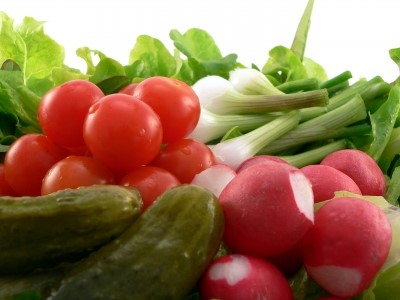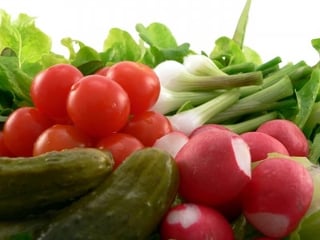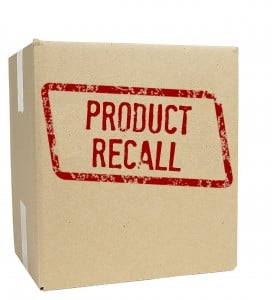Food ERP: 3 Product Recall Planning Best Practices Part I
Food ERP – Product Recall Planning If you are in the food and beverage industry, you know there is nothing more terrifying than facing and dealing...
2 min read
Colin Hanes Tue, Mar 08, 2016

 Food ERP News: Packaged Salad Makers and Listeria Prevention
Food ERP News: Packaged Salad Makers and Listeria PreventionProblems with Listeria monocytogenes contamination in food processing operations has turned the term “healthy salad” on its ear. Recalled foods in the recent past has affected mostly fresh produce, particularly bagged, pre-cut salads.
Raw spinach and cucumbers were recalled last year based on concerns about salmonella contamination, but the more frequent problem. Listeria, which is the big issue facing fresh produce processors. Dole and PC Organics are facing both have had the Canadian Food Inspection Agency which issued a recall notice related to a Listeria outbreak.
A best practice article was released this month in Food and Safety Magazine about controlling Listeria in fresh-cut food environments. Unfortunately, Listeria thrives in the cold, wet environments used to process fresh produce. Forming “bio-films”, which are hard to remove and continue to grow, contaminate the food when it comes into contact with it.
The article includes ways to protect against Lysteria by cleaning, testing for that and other bacteria along with the collection of test data. The article is missing one very critical step...a business software system to analyze, document and record all aspects of food safety data that impacts the facility.
Capturing this data with a business management software is critical to keeping consumers safe. It easily allows compliance with government safety regulations, quick action in the case of a recall and assess the costs of safety-related business activities.
ERP software allows food processing companies to track shipments of produce that arrive at a facility, record what machines and employees come in contact with the produce, and to ensure that scheduled cleaning activities have occurred. ERP Suppliers and food processing companies can leverage ERP Software to collaborate with customer, analyze the impact of scenarios such as a product recall, and track risks and costs. In short, ERP software is rapidly becoming a must-have for companies in the fresh produce industry.
NexTec Group suggests Sage X3 for customers in food distribution and food manufacturing. Sage X3 has enabled food companies to identify every single step in the process from raw material to finished products, gaining control of costs as well as minimizing food safety risks.
Please contact us to find out more about what Sage X3 solutions can do to help you address food safety issues.
Another version of this blog was previously posted on March 7, 2016. Makers of packaged salads investigate ways to combat Listeria contamination - http://www.nextecgroup.com/blog/makers-of-packaged-salads-investigate-ways-to-combat-listeria-contamination/
Photo courtesy of freedigitalphotos.com Photo #1 by James Barker and Photo #2 Stuart Miles

Food ERP – Product Recall Planning If you are in the food and beverage industry, you know there is nothing more terrifying than facing and dealing...

Food ERP: Lesson Learned on Product Recalls With the latest recall alerts from Blue Bell Creameries and Sabra’s hummus for listeria contamination,...

Food ERP: How to Manage the Best Case Scenario In the first article of this series, “Food ERP: 3 Product Recall Planning Best Practices: Part I,” we...